Overview
The Interventional Cardiology Fellowship at Mayo Clinic in Phoenix, Arizona provides a broad-based learning experience in all aspects of interventional cardiology.
Applicants apply for a two-year fellowship with the first year being ACGME-accredited and focused on coronary interventions, and the second year of unaccredited training in structural heart disease interventions. Alternatively, applicants may choose to apply for only the ACGME-accredited training year.
You will receive high-quality education in patient evaluation, technical performance, and post-procedural management of simple and complex interventional procedures. There will be opportunities for medical teaching and research.
Application process
Positions
One applicant is selected on a competitive basis for the Interventional Cardiology Fellowship at Mayo Clinic in Phoenix, Arizona.
Qualifications
To be eligible for the Interventional Cardiology Fellowship, you must have successfully completed three years of cardiovascular training.
Also see application materials for Mayo Clinic School of Graduate Medical Education.
How to apply
The academic year begins in July.
The application and all supporting documentation must be submitted by Sept. 1, approximately 10 months preceding the program start date (July 1).
You must apply through the Electronic Residency Application Service (ERAS) for fellowship applicants.
- Visit the ERAS for fellowship applicants website.
- If you are considered for an appointment, you will be contacted for an interview with the program director and faculty. Interviews are conducted in October and November each year.
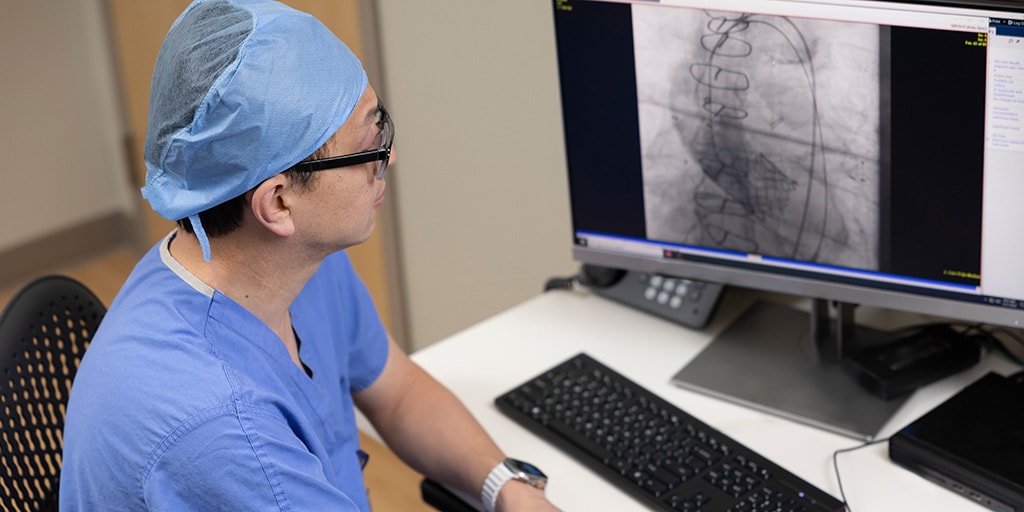
Curriculum
Clinical training
The two-year program will provide training in coronary and structural heart interventions.
- In the first year (which is ACGME accredited), you spend four days a week in the Cardiac Catheterization Laboratory and one half-day a week in the outpatient Interventional Cardiology Clinic.
- In the second year, you spend one day a week in the Structural and Interventional Cardiology clinics, with the remainder of your time in the Catheterization Laboratory.
You will be responsible for pre-procedural patient evaluation, informed consent, and post-procedural care in conjunction with the attending physician. Clinical responsibilities advance as appropriate to your level of training and ability.
In the fourth quarter of the first year, you will have increased autonomy and have the opportunity to be the primary operator of a catheterization suite with a technician. The attending physician is present in the control room to assist as needed. Also, during the fourth quarter, as a first-year fellow, you will start to become involved in structural procedures and participate in the structural clinic.
As a second-year fellow, you have similar patient care responsibilities and, in addition to structural cases, participate in limited night and weekend call to maintain percutaneous coronary intervention (PCI) skillset. During the fourth quarter, as first-year fellows begin their involvement with structural procedures, second-year fellows participate in the daily PCI case rotation.
The outpatient clinic consists of new patient evaluations as well as follow-up of previously seen patients. You will perform any indicated procedure on these patients in conjunction with the attending physician.
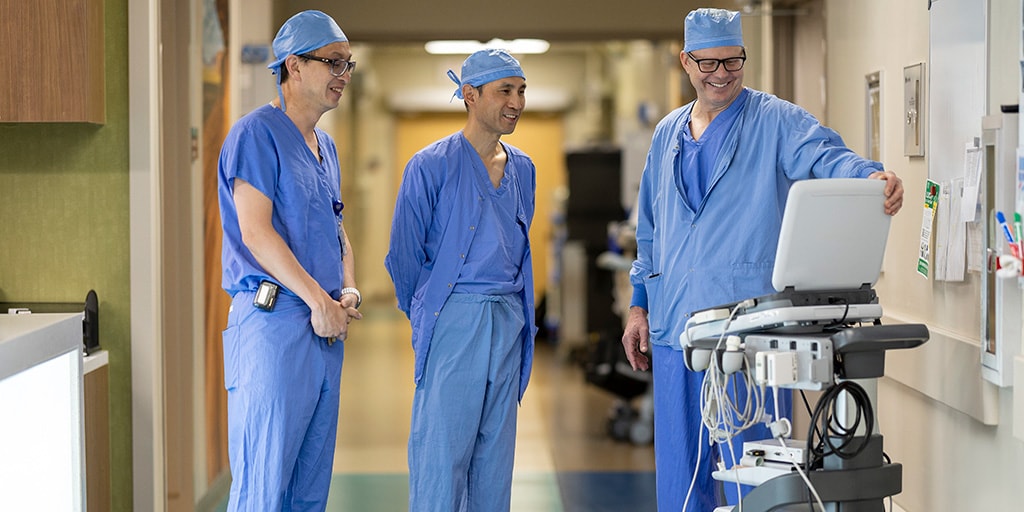
Department and faculty
Faculty
The Interventional Cardiology Fellowship includes four interventional cardiologists. You have direct access to the cardiology faculty at Mayo Clinic in Arizona throughout your training.
Physicians, scientists, residents, students, nurses, and allied health staff members work as a team guided by our mission statement. In addition to caring for patients in clinical practice, Mayo Clinic's faculty is committed to teaching and facilitating the growth of medical knowledge. Many of our faculty members have published and lectured extensively and are highly regarded in their fields.
Advisers and mentors
You may choose a mentor in research. In addition, the program director counsels and assists you with career development during your quarterly meetings.
Visiting professors
Many prominent professors visit Mayo Clinic in Arizona each year. They present their work during lectures, participate in hospital rounds, and have informal discussions with trainees. You are encouraged to take full advantage of these educational opportunities.
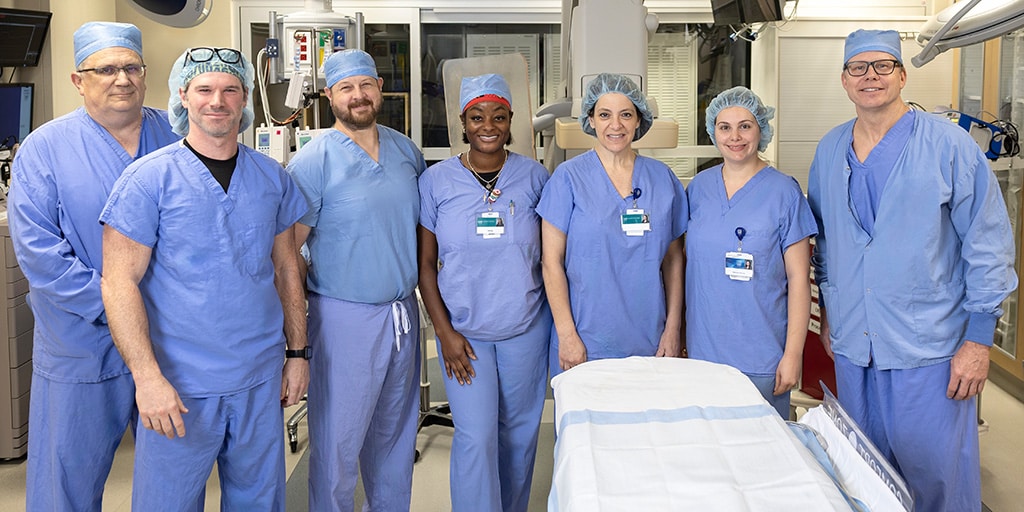
/0x0:512x512/prod01/channel_2/media/mccms/content-assets/academics/residencies-and-fellowships/512X512-1537720_3454815_0001R.jpg)
Video: The Arizona Experience
2:30
Belonging
At Mayo Clinic, we foster an inclusive working environment and embrace the diversity of all our trainees, faculty, staff, and patients. Our Office of Belonging offers tremendous resources to support our mission of maintaining a welcoming atmosphere for all our employees, including our learners. We strive to provide culturally appropriate care and do our part to reduce healthcare disparities.
/0x0:512x512/prod01/channel_2/media/studio-sites/mccms-reference-guide/512X5121573348_3801872_0024-(1).jpg)
Video: See yourself at Mayo Clinic
5:33
Wellness initiatives
As a trainee, your physical and mental health are priorities to Mayo Clinic and the department. Trainees have access to several resources to promote well-being, as well as time off clinical duties to attend appointments.
- Fitness centers
- Groups on campus
- Well-being
Fitness centers
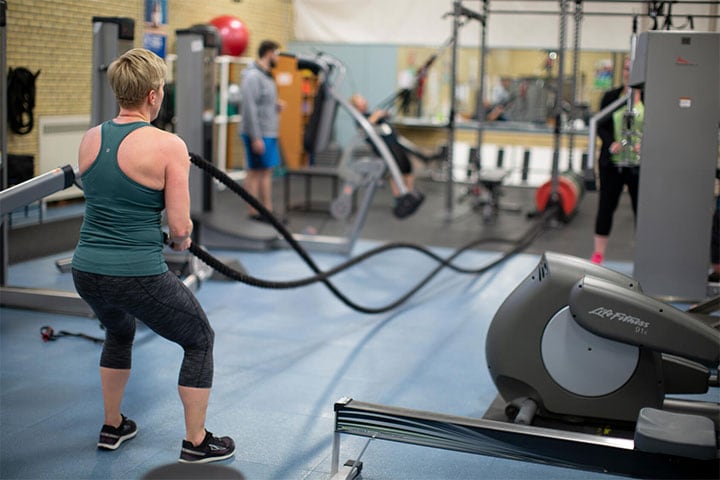 As a resident or fellow at Mayo Clinic in Arizona, you have access to an exclusive learners-only gym and wellness center conveniently located in Phoenix. Additionally, Mayo Clinic residents or fellows at our three campuses get discounted membership fees to area gyms through PerkSpot, the Mayo Clinic employee discount program.
As a resident or fellow at Mayo Clinic in Arizona, you have access to an exclusive learners-only gym and wellness center conveniently located in Phoenix. Additionally, Mayo Clinic residents or fellows at our three campuses get discounted membership fees to area gyms through PerkSpot, the Mayo Clinic employee discount program.
All Mayo employees, including Arizona learners, can also sign up to take live virtual fitness classes or view recorded fitness classes offered by the Dan Abraham Healthy Living Center (DAHLC).
Groups on campus
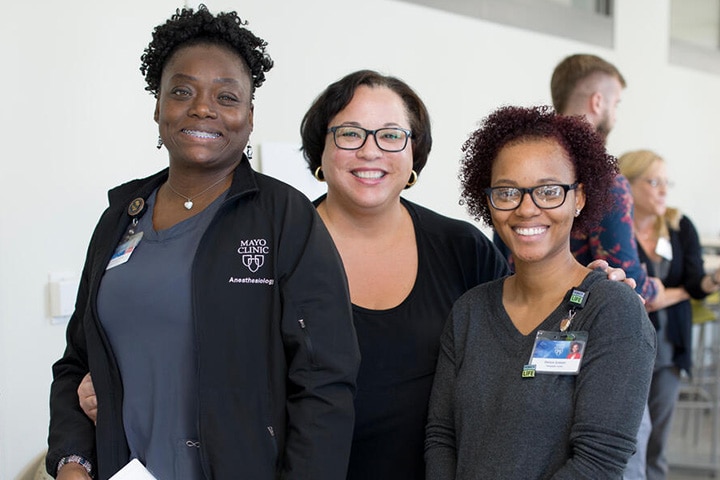 Opportunities to join a variety of groups on campus provide regular social activities and can help enhance your training while connecting with a broad group of peers.
Opportunities to join a variety of groups on campus provide regular social activities and can help enhance your training while connecting with a broad group of peers.
Trainees have the opportunity to join a Mayo Employee Resource Group (MERG) at any time during their training program. MERGs are employee-led affinity groups to promote belonging, increase cultural awareness, and foster an environment of respect and inclusivity. Any Mayo Clinic employee can join a group of interest and choose their level of involvement.
Well-being
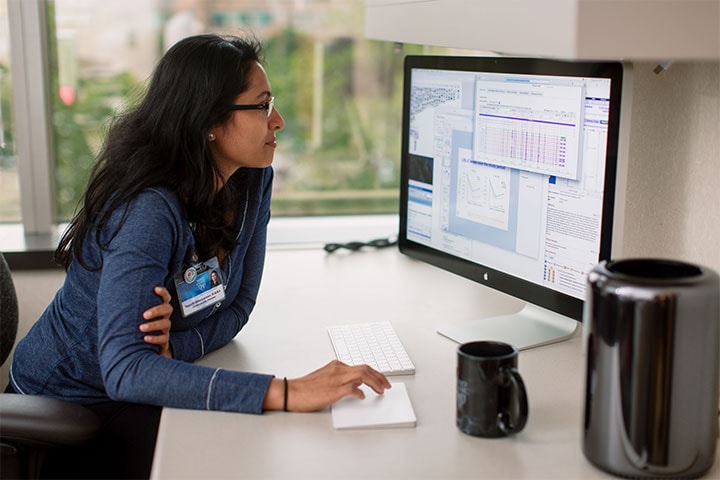 The Office of Academic Support and Well-Being provides resources to promote academic, emotional, social, cognitive, financial, and physical well-being. Career and academic services include academic advising, peer tutoring, and accommodations for learners with disabilities or health conditions. Mental health services, counseling, interview practice, and a variety of enrichment sessions on topics like budgeting, resiliency, and stress and burn-out are also available through the Academic Support and Well-Being office.
The Office of Academic Support and Well-Being provides resources to promote academic, emotional, social, cognitive, financial, and physical well-being. Career and academic services include academic advising, peer tutoring, and accommodations for learners with disabilities or health conditions. Mental health services, counseling, interview practice, and a variety of enrichment sessions on topics like budgeting, resiliency, and stress and burn-out are also available through the Academic Support and Well-Being office.
More from Mayo Clinic School of Graduate Medical Education
/0x0:512x512/prod01/channel_2/media/mccms/content-assets/academics/residencies-and-fellowships/3319834_0363-512X512.jpg)
Choosing Mayo Clinic
/0x0:512x512/prod01/channel_2/media/mccms/content-assets/shared-documents/campus-AZ-3180811-0001-pic-tile.jpg)
Phoenix/Scottsdale, AZ
Campus and community
/0x0:512x512/prod01/channel_2/media/studio-sites/mccms-reference-guide/512X5121676671_3824027_0010_C.jpg)
Stipend and benefits
Mayo Fellows Association (MFA)
The Mayo Fellows Association (MFA) offers a peer and social support network for residents and fellows and their families with social events, athletics, and advocacy. The MFA also holds an annual resident and fellow appreciation event open to all trainees with complimentary massages, stress-reducing activities, and social support.
/0x0:512x512/prod01/channel_2/media/mccms/content-assets/academics/residencies-and-fellowships/interventional-cardiology-fellowship-arizona/intervent-cardiol-fellowship-az-512X512-WF4085327-0005.jpg)
/0x0:440x220/prod01/channel_2/media/mccms/content-assets/campus-amp-community/arizona/440X220_sidebar-mayo-clinic-phoenix-arizona-is453080663.jpg)